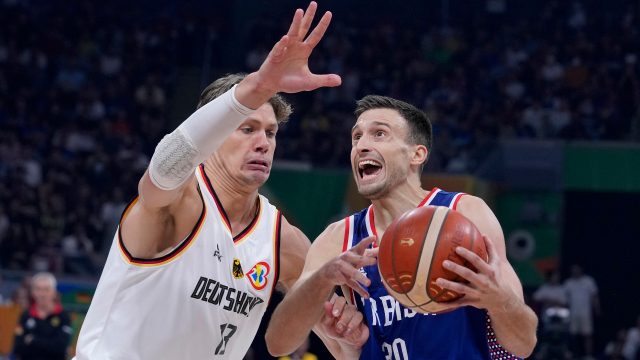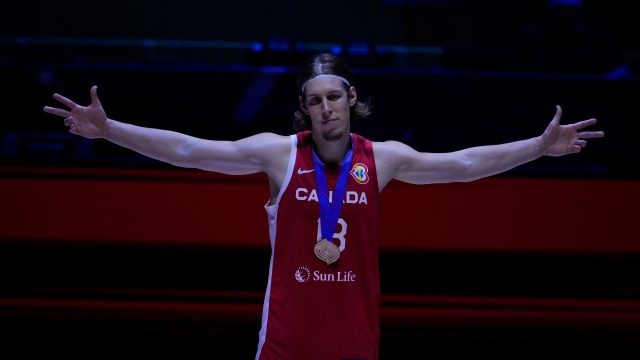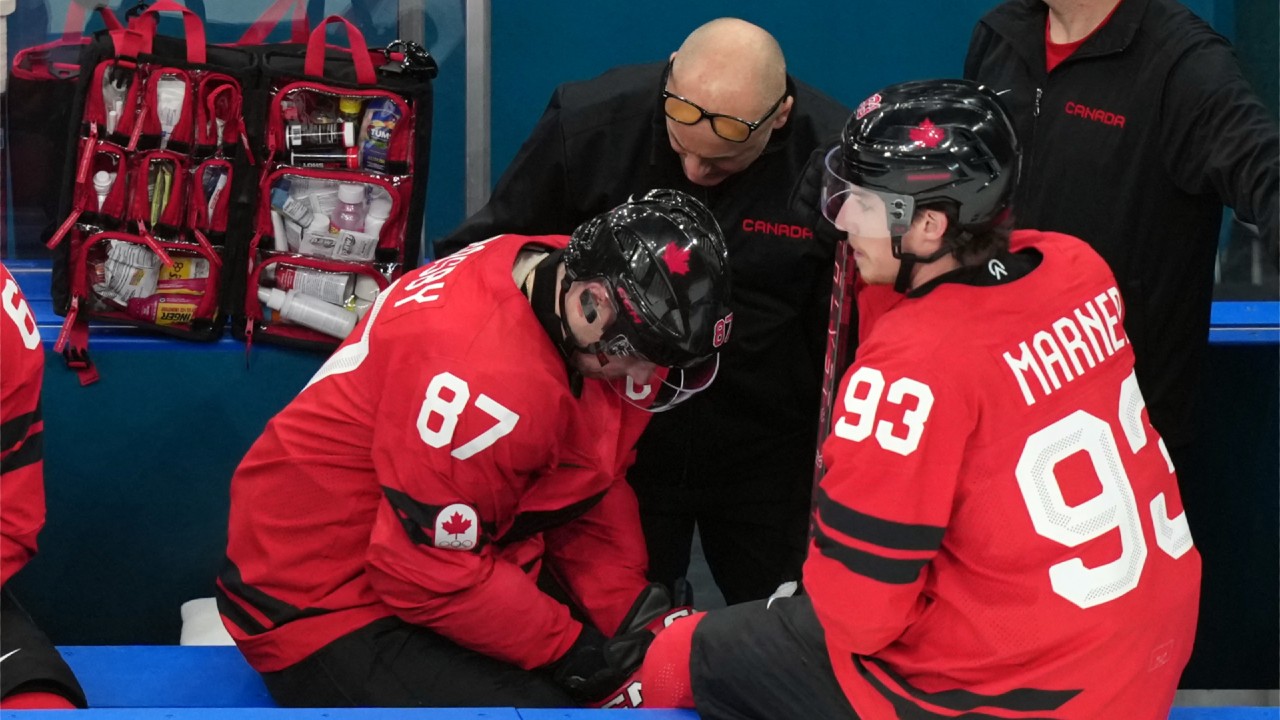
As much as the long Olympic drought gets mentioned, a better way to express the Canadian men’s basketball program’s struggles over the decades is its standing at the world championships, now known as the FIBA Basketball World Cup.
The highwater marks came under the late Jack Donahue as Canada and led by icons like Leo Rautins and Jay Triano, recorded a sixth-place finish in 1978 and again in 1982 when the world felt bigger and the sport smaller.
In 1994 they managed a seventh-place finish when the event was held in Toronto and Steve Nash was making his senior team debut.
But since then, the World Cup has mostly proved that Canada was falling short and falling behind.
In 1998 we finished 12th in a 16-team field, in 2002 we were 13th. We failed to qualify in 2006 and finished 0-5 and 21st out of 24 teams in an expanded field in 2010.
Canada missed out on qualifying in 2014 and in 2019 – the exact moment we were finally supposed to be ramping up and fielding teams and garnering results commensurate with our burgeoning talent base – they finished 21st out of 32 teams in China.
That’s the context for their history-making bronze-medal win over the U.S. in Manila in the wee hours of Sunday morning (in Canada at least) as they rode a historic 39-point explosion from Dillon Brooks – the highest individual total for a Canadian ever at the World Cup – and another moment of excellence from Shai Gilgeous-Alexander, who contributed 31 points and 12 assists to help Canada outlast their continental rivals 127-118 in an overtime thriller.
Not only did the Canadian men win a medal at a global event for the first time since the 1936 Olympics (Canada’s women won bronze in 1979 and 1986 and were fourth in 2022), but they did it by running through a gauntlet of the world’s traditional basketball powers.
In order, they knocked off No. 5 France, No. 1 Spain, No. 7 Slovenia and No. 2 USA, with a crucial win over Latvia – who eventually finished fifth in the tournament – thrown in for good measure. A remarkable snowing for a Canadian team that entered the tournament ranked 15th overall.
No country faced a more difficult schedule, and no team handled it better than Canada, its loss to No. 6 Serbia in the semifinal notwithstanding.
The win and the entire tournament performance marked both the end and a beginning for a Canadian program that has been like an erratic young thoroughbred for years now, showing every sign of having the attributes of a stakes winner, but for various reasons never finding its feet on race day.
For stalwarts like Kelly Olynyk – whose national team debut came as a 19-year-old in 2010 when Canada went 0-5 – and Dwight Powell, battle-scarred vets with not much to show for years of giving up their summers to play for their country, it represents a moment of validation.
The sacrifice has been worth it. Next summer they will both fulfill their dream of being Olympians – a by-product of Canada’s strong run was directly qualifying for the 2024 Games, which will mark Canada’s first appearance since 2000 – and will arrive in Paris as bronze medalists with every right to expect their next medal will be gold.
And for the newcomers, the cutting-edge of Canadian talent who haven’t been around long enough to fully understand how historic an achievement they helped engineer, winning bronze at the World Cup sets a new standard.
For the rest of their international careers, the likes of Gilgeous-Alexander (24), RJ Barrett (23), Nickeil Alexander-Walker (24), Lu Dort (24) and Brooks (27, but making playing in his first senior event) will see a medal as their right rather than a distant dream.
There is no reason to expect otherwise.
The presence of Gilgeous-Alexander alone means Canada is a threat to win any game it plays. His statistical line over eight games at the World Cup only begins to capture the level of his contribution, though tournament averages of 24.5 points, 6.4 assists and 6.4 rebounds on 54.4 per cent shooting do give a pretty good hint.
More telling has been the Oklahoma City Thunder star’s ability to will his team to win in crucial moments. It started with his third-quarter takeover against France in Canada’s tone-setting blowout of the Olympic silver medallists in the tournament opener and ended with his incredible display down the stretch and in overtime against the U.S., where Gilgeous-Alexander scored nine points and added four assists after the U.S. had comeback from down 10 to tie the game midway through the fourth quarter.
Gilgeous-Alexander’s signature plays Sunday were a pull-up jumper and then a step-back three in the opening minutes of overtime that put Canada up by five with 3:37 to play after a USA had tied to game with 0.6 seconds left in regulation after a miracle three following an intentionally missed free throw by Mikael Bridges with 0.6 seconds left. His signature plays for the tournament were too many to mention.
But most encouragingly, is that as the tournament went on, his teammates learned how to fit in alongside such a special talent.
For the entire 17 days almost no one did it better than Brooks and his showing in the bronze medal game was as complete a performance as anyone has ever had in a Canadian uniform. He was Canada’s second-best player for the tournament and served notice to the NBA and his new employers, the Houston Rockets, that he’s ready to leave a difficult 2022-23 season behind him.
And while Canada’s supporting cast wasn’t perfect, they all had their moments, perhaps most notably Barrett, who had consecutive 23-point outings to finish the tournament. It was Barrett’s three from the top of the arc with 44 seconds left that iced the game for Canada.
But as well as the tournament went, there were still moments where it showed how much growth is still required for this group to match or exceed their World Cup accomplishment in what will be a more loaded field at the Olympics.
Canada might not have the leeway to cough up a stinker like it did against Brazil in the group stage, and as the Canadians’ loss in the semifinals proved, in international basketball, NBA pedigree can only take you so far against teams that feature multi-skilled players across its lineup and play the highest grade of team basketball.
Canada will need to be better to finish in the medals in Paris.
Looking forward Canada will benefit with some additions, with Jamal Murray and Andrew Wiggins at the top of the list of players they should be looking to add to the current core heading to Paris.
But even more than the potential benefit of adding two superb NBA players who have skills that would round out some of the existing group’s shortcomings (depth of shooting and shot creation come to mind), the tangible benefits of a bronze medal finish have already been realized.
For the first time and after a very long time coming, Canada’s men’s national team has proven itself at the highest level of international basketball, and signalled loudly that the best is yet to come.






